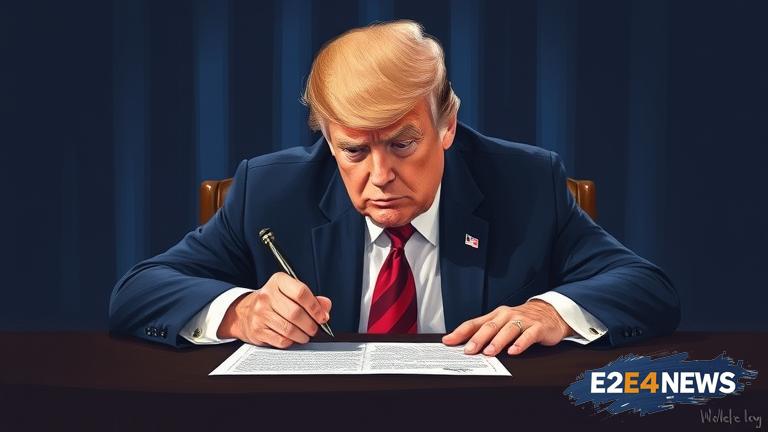President Trump has signed an executive order intended to clarify the rules surrounding college athlete compensation, a move that has been met with both praise and criticism from educators and lawmakers. The order, which was signed on July 24, 2025, is designed to provide greater clarity on the rules governing college athlete compensation, particularly with regards to their ability to profit from their own name, image, and likeness. The move is seen as a response to growing pressure from college athletes, who have been advocating for the right to earn money from endorsements and other business ventures. The order is also intended to address concerns that the current rules are unclear and inconsistent, leading to confusion and uncertainty among college athletes, coaches, and administrators. The National Collegiate Athletic Association (NCAA) has been at the center of the debate, with some arguing that the organization’s rules are too restrictive and others arguing that they are necessary to maintain the integrity of college sports. The executive order is seen as a significant development in the ongoing debate over college athlete compensation, and it is likely to have far-reaching implications for the world of college sports. The order has been praised by some as a step in the right direction, as it recognizes the rights of college athletes to earn money from their own name, image, and likeness. However, others have criticized the order, arguing that it does not go far enough in addressing the underlying issues and that it may even create new problems. The debate over college athlete compensation is complex and multifaceted, with different stakeholders having different opinions and interests. Some argue that college athletes should be allowed to earn money from endorsements and other business ventures, as they are essentially professionals who are generating significant revenue for their colleges and universities. Others argue that allowing college athletes to earn money would undermine the amateur status of college sports and create an uneven playing field. The NCAA has been working to address the issue, but its efforts have been met with criticism and skepticism from some quarters. The executive order is seen as a significant development in the ongoing debate, and it is likely to have far-reaching implications for the world of college sports. The order has sparked a lively debate among educators, lawmakers, and sports enthusiasts, with some hailing it as a major breakthrough and others criticizing it as a half-measure. As the debate continues to unfold, it is clear that the issue of college athlete compensation is complex and multifaceted, and that there are no easy answers. The executive order is a significant step in the right direction, but it is only the beginning of a longer conversation about the rights and interests of college athletes. The order has also raised questions about the role of the federal government in regulating college sports, and whether the government should be involved in setting rules for college athlete compensation. The debate is likely to continue in the coming months and years, as stakeholders work to find a solution that balances the interests of college athletes, colleges and universities, and the NCAA. The issue of college athlete compensation is a contentious one, and it is likely to remain a major topic of discussion in the world of college sports for some time to come. The executive order is a significant development, but it is only one step in a longer process of addressing the complex issues surrounding college athlete compensation.
